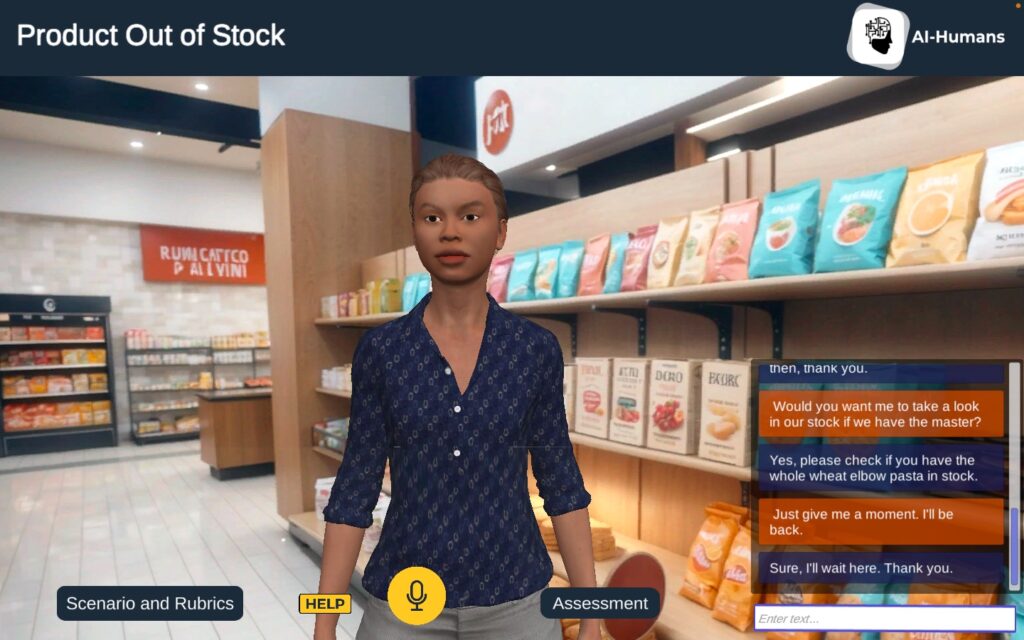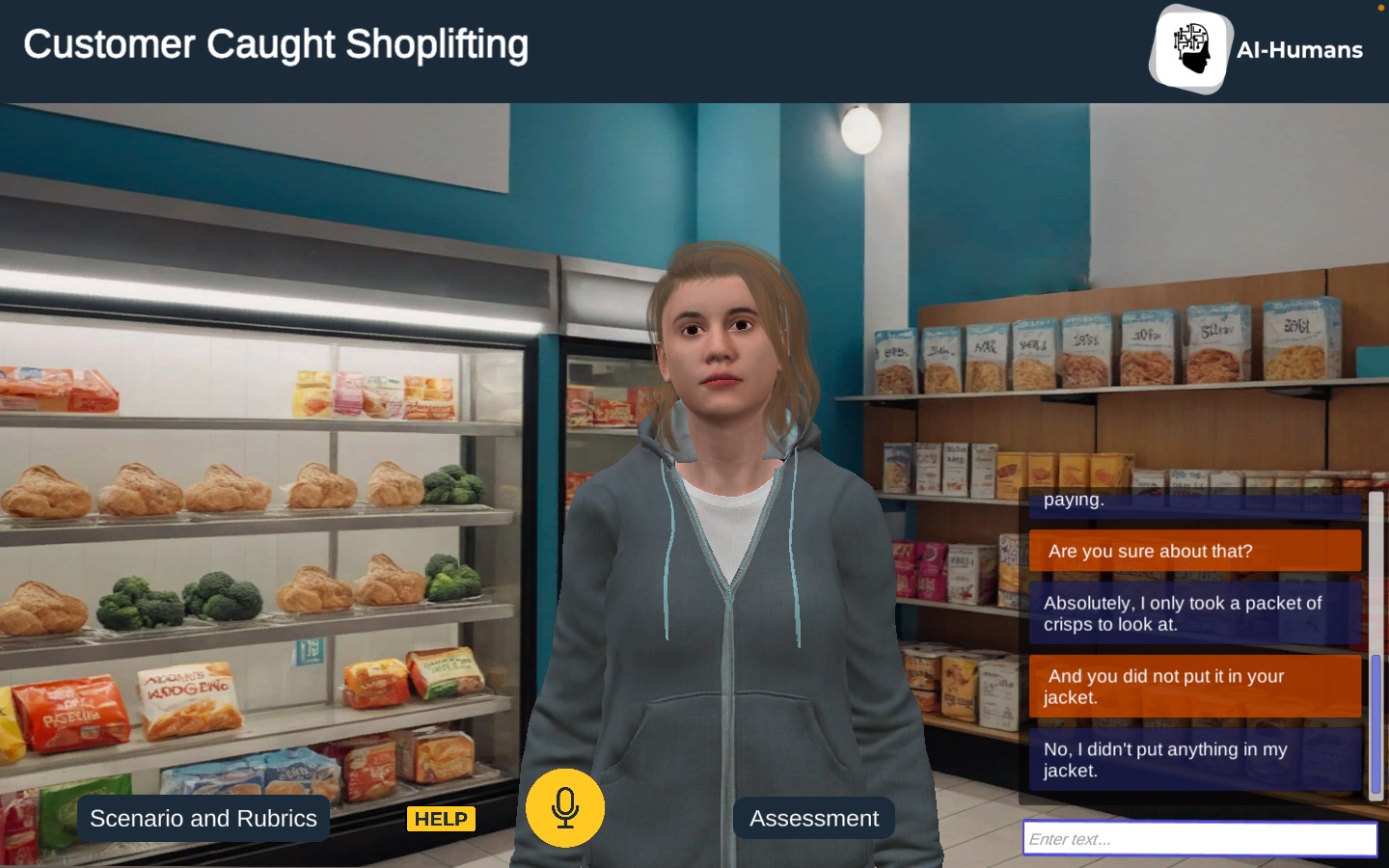The retail industry has undergone dynamic changes and competition is fierce. This means that staying ahead of the curve is not just a goal but a necessity. With rapidly evolving consumer preferences and market trends, the need for a highly skilled workforce is more pressing than ever. With the emergence of Artificial Intelligence (AI) on the scene, retail sector training is set to witness revolutionizing changes.
Skills Required in the Retail Sector
Before delving into the role of AI in training, it’s crucial to understand the essential skills required in the retail sector. Some of the significant ones include: Customer Service: The ability to understand and fulfill customer needs is paramount. Product Knowledge: A deep understanding of the products being sold enhances customer interactions. Communication: Clear and effective communication is vital for building relationships with customers and colleagues. Problem-solving: Quick thinking and adaptability are essential to solve customer issues and handle unexpected situations. Sales Techniques: Techniques to upsell and cross-sell products, ultimately driving revenue, are critical.
Benefits of Using AI in Retail Training
So, how does AI fit into the training scenario? Well, in a number of ways because it carries with it a range of benefits.
Scalability: AI enables retailers to scale their training efforts efficiently, regardless of the size of their workforce or geographic spread. With AI-driven learning platforms, employees can access training materials anytime, anywhere, eliminating the constraints of time and location.
Cost-effectiveness: Traditional training methods often incur significant costs associated with hiring instructors, arranging physical training spaces, and developing training materials. AI-driven solutions minimize these expenses by automating various aspects of the training process, such as content creation, delivery, and assessment.
Real-time Feedback: AI systems provide real-time feedback and performance metrics to both employees and trainers. This instant feedback loop allows employees to track their progress, identify areas for improvement, and receive timely guidance from supervisors or AI-powered coaching bots.
Adaptability: The retail industry is constantly evolving, with new products, technologies, and customer preferences emerging regularly. AI-powered training solutions can quickly adapt to these changes by updating content and learning modules in real-time. This ensures that employees stay up to date with the latest industry trends and best practices.
Efficiency: AI streamlines administrative tasks like scheduling, grading, and feedback delivery, allowing trainers to dedicate their energy to designing innovative training strategies and fostering professional development.
Improved Learning Outcomes: AI’s personalized approach ensures that each employee receives training tailored to their unique learning preferences and capabilities, maximizing retention and practical application of acquired knowledge.
Employee Engagement: Through interactive simulations, gamification, and real-time feedback, AI transforms training sessions into immersive experiences that captivate employees’ attention, fostering a sense of enjoyment, accomplishment, and intrinsic motivation.

How AI-Humans is Transforming Retail Sector Training
AI-Humans is a SaaS-based application that is set to revolutionize the way professionals, both learners and trainers, engage in learning and training in the retail sector. While learning with AI-Humans solutions can be highly engaging, creating training material will prove to be extremely easy and seamless.
Benefits for trainers:
Rapid Case Creation: AI-Humans enables the creation of AI-powered training scenarios in just 10 minutes, simplifying the process with user-friendly interfaces.
No Technical Expertise Needed: Learning professionals and instructional designers can effortlessly create immersive training without any technical skill requirement, making it accessible to all skill levels.
Multi-platform Publishing: Trainings can be published for web browsers or VR/MR headsets, catering to diverse learning preferences and ensuring accessibility across various mediums.
Diverse Virtual Characters: The platform offers a vast selection of virtual characters, allowing customization to suit specific training needs and audience demographics.
Varied Environments: Choose from a wide range of virtual environments tailored to specific scenario and branding requirements, enhancing realism and relevance.
Customization Options: Customize characters and environments according to preferences, ensuring alignment with training objectives and organizational branding.
Flexible Assessment Rubrics: Tailor assessment rubrics to evaluate specific skills, promoting targeted learning outcomes and real-world applicability.
AI-powered Debriefing: Post-training debriefings provide detailed performance analysis based on assessment rubrics, facilitating personalized feedback and improvement.
Review Conversation Logs: Access conversation logs to monitor learner progress and identify areas for improvement, enabling continuous refinement of training scenarios.
LMS Integration: Seamless integration with any Learning Management System (LMS) simplifies course deployment and management, enhancing organizational learning efficiency.
Benefits for Learners:
Realistic Environment: Scenario-based training mirrors real-life situations, enhancing engagement and immersion for employees.
Soft Skill Application: Employees practice communication, collaboration, and problem-solving within simulated scenarios, fostering practical skill development.
Learning Retention: Practical training improves retention, enabling employees to remember and apply learning in real-world situations.
Immediate Feedback: Participants receive instant feedback, refining responses and soft skills iteratively within scenarios.
Skill Practice: Training allows practice of decision-making, problem-solving, and communication in realistic settings.
Engaging Learning: Interactive training keeps participants actively engaged, enhancing effectiveness and dynamism.
Perspective Exploration: Scenarios enable employees to explore diverse viewpoints, fostering empathy and understanding.
Repeat Practice: Learners can practice scenarios repeatedly with no time-lag in between sessions.
In conclusion, AI is not just a buzzword and AI-Humans is a game-changer for the retail industry in the realm of employee training and development. By leveraging AI-powered technologies, retailers can empower their workforce with the skills and knowledge needed to succeed in an ever-changing market landscape. Embracing AI in retail training isn’t just about staying competitive; it’s about shaping the future of retail excellence.

